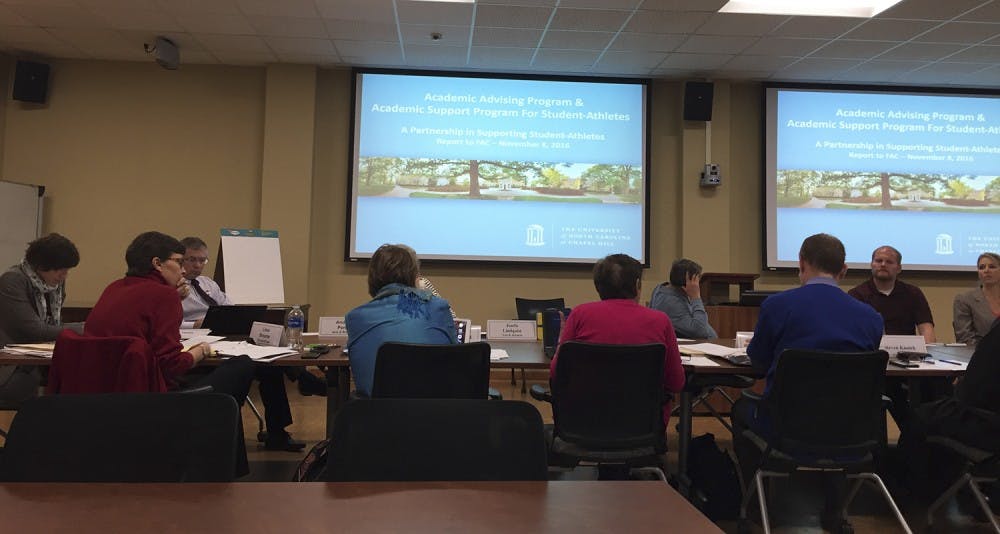The Faculty Athletics Committee met Tuesday to discuss student-athlete exit interviews and surveys, pending NCAA legislation and student-athlete academic advising.
Nicki Moore, senior associate athletic director, gave an overview of the newest student-athlete exit surveys and interviews. She said UNC-Chapel Hill’s policies on the exit surveys and interviews go beyond the NCAA minimum requirements.
“We’re doing a much more thorough job than most other schools I know of,” Moore said.
One change occurring this year is that the exit surveys will be conducted more than once a year to better reflect the sports seasons, according to Moore.
“In reality we have three different seasons, we’ve got fall sports, winter sports and spring sports,” Moore said. “So one of the adjustments that we’re planning to make this year to try to continue to increase response rates and hopefully to capture student-athlete responses more near to when they actually finish their sport is to distribute the survey online three different times.”
The exit surveys are conducted online through Qualtrics survey software and sports administrators conduct the exit interviews, Moore said.
“We try to make the things in the exit interview things we couldn’t get from the survey,” Moore said.
Committee member Lissa Broome gave an overview of the pending NCAA legislation, specifically the autonomy legislation that will be voted on in January.
The autonomy proposals she highlighted concerned limits to Countable Athletically Related Activity, limits to off-campus practice during a vacation during the non-championship segment or spring football practice period, limits to missing class time for media activities and increased opportunities for spending on student-athlete participation in elite national events.




